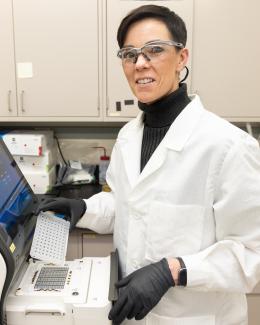Abstract
Poplar is a short-rotation woody crop frequently studied for its significance as a sustainable bioenergy source. The successful establishment of a poplar plantation partially depends on its rhizosphere—a dynamic zone governed by complex interactions between plant roots and a plethora of commensal, mutualistic, symbiotic, or pathogenic microbes that shape plant fitness. In an exploratory endeavor, we investigated the effects of a consortium consisting of ectomycorrhizal fungi and a beneficial Pseudomonas sp. strain GM41 on plant growth (including height, stem girth, leaf, and root growth) and as well as growth rate over time, across four Populus trichocarpa genotypes. Additionally, we compared the level of total organic carbon and plant exometabolite profiles across different poplar genotypes in the presence of the microbial consortium. These data revealed no significant difference in plant growth parameters between the treatments and the control across four different poplar genotypes at 7 weeks post-inoculation. However, total organic carbon and exometabolite profiles were significantly different between the genotypes and the treatments. These findings suggest that this microbial consortium has the potential to trigger early signaling responses in poplar, influencing its metabolism in ways crucial for later developmental processes and stress tolerance.





